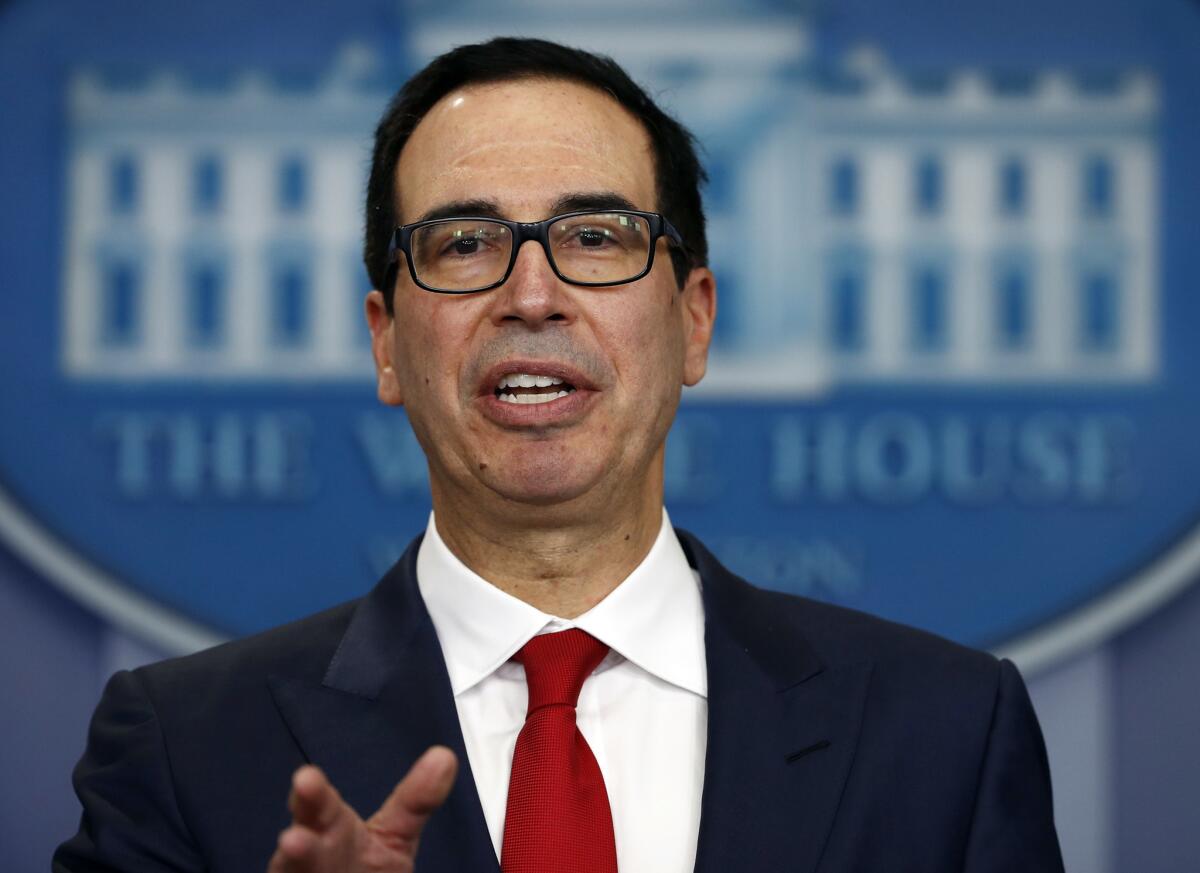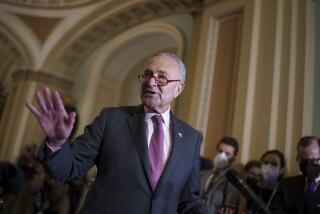Treasury seeks a $250-billion boost for small business loans

- Share via
The Treasury Department is asking Congress for $250 billion more to aid small businesses, and Secretary Steven T. Mnuchin said he expects the House and Senate to act as soon as this week.
Mnuchin said Tuesday that he’s spoken with Senate Majority Leader Mitch McConnell, Senate Democratic leader Chuck Schumer, House Speaker Nancy Pelosi and House GOP leader Kevin McCarthy about quickly securing the money.
“We look forward to the Senate passing that on Thursday and the House passing that on Friday,” Mnuchin said as he and President Trump met with bank executives at the White House.
For small business owners, the features of the government coronavirus rescue programs can be divided into two categories: good and confusing.
McConnell said earlier that the Senate could approve more funding for the program during Thursday’s pro-forma session by voice vote or unanimous consent, which wouldn’t require all members of the chamber to return to Washington.
Pelosi said she supported providing additional funding but didn’t commit to seeking quick approval without additional conditions.
That program “needs money right away, we know that,” she said on CNN. But she said the government doesn’t have data so far on who is receiving the money. Democrats want to make sure the program is benefiting everyone who qualifies for it, she said.
“So we have certain considerations if we need to go forward with that,” Pelosi said without elaborating.
Schumer has not said whether he would support the plan for a quick vote just on a funding boost for the small business program.
Businesses have rushed to tap the $350-billion Paycheck Protection Program that was part of the massive $2.2-trillion stimulus passed by Congress in response to the economic crisis spawned by the coronavirus pandemic.
Stay-at-home orders across the country have particularly squeezed small businesses, which account for almost half of U.S. private employment.
Trump said the Small Business Administration has processed $70 billion in guaranteed loans, “which is far greater than we would have ever thought.”
That amount represents the value of loans SBA has registered and guaranteed for lenders to complete the process and disburse funds.
Pelosi previously called for an extension of the PPP program as part of a next round of stimulus that also would include an unemployment insurance extension, more direct payments to individuals and relief for states and localities. She has estimated the bill would cost at least $1 trillion.
Republicans have thus far been reluctant to enact a wide-ranging phase four stimulus bill. Now that they and their core business supporters such as the U.S. Chamber of Commerce are demanding an infusion for PPP, Democrats could have leverage to obtain more unemployment insurance and direct payment for workers. Pelosi would have to weigh such an opportunity against the political costs of delaying aid to small businesses.
A single lawmaker in either chamber could thwart plans for a quick vote. Two weeks ago, Rep. Thomas Massie (R-Ky.) drew the ire of his congressional colleagues by forcing many of them to return to Washington to vote personally on the $2-trillion stimulus bill, rather than allow a lightly attended voice vote-procedure for its passage.
Massie’s office did not immediately respond Tuesday to questions about whether he might again attempt to force a quorum of his colleagues to return to Washington should Pelosi schedule a vote.
More to Read
Inside the business of entertainment
The Wide Shot brings you news, analysis and insights on everything from streaming wars to production — and what it all means for the future.
You may occasionally receive promotional content from the Los Angeles Times.











